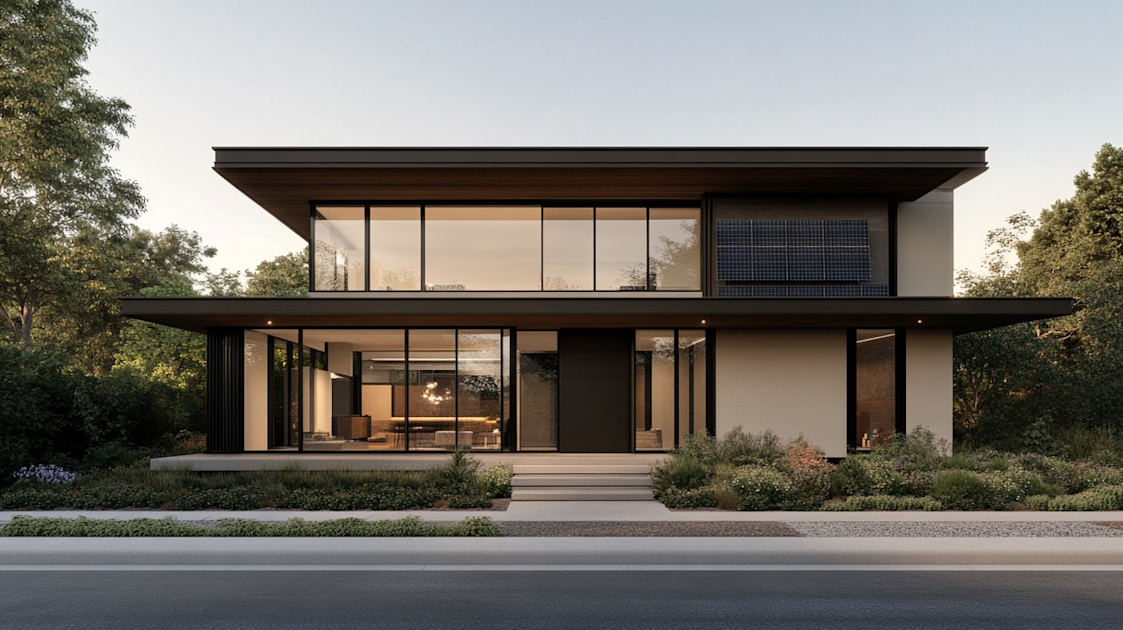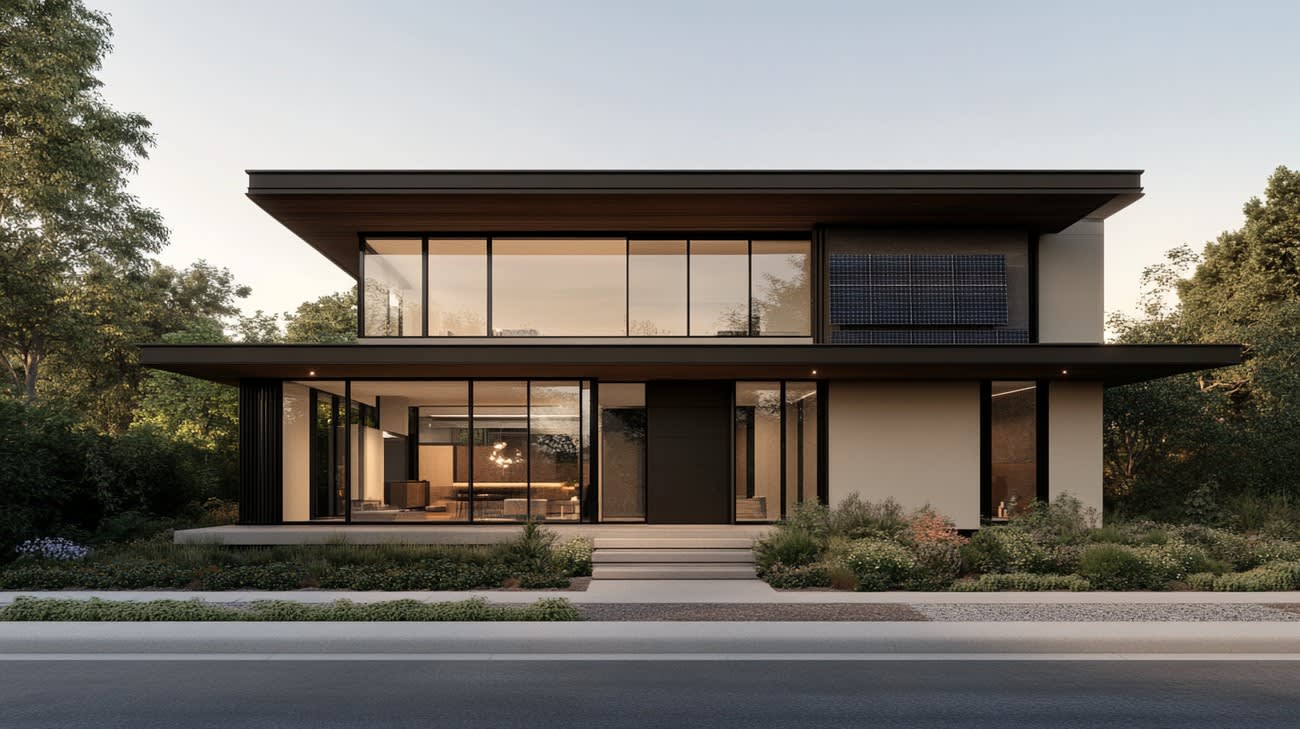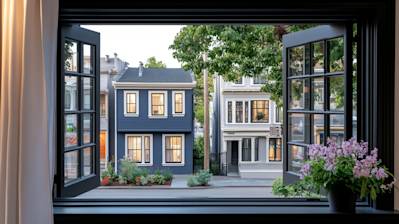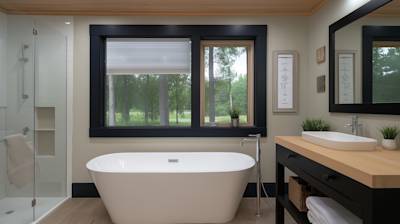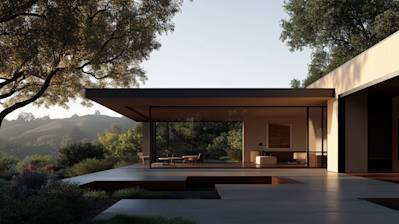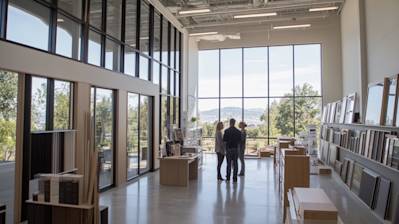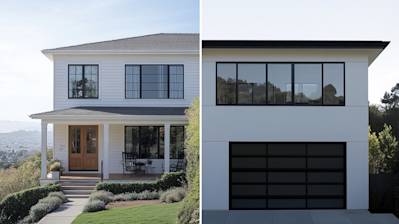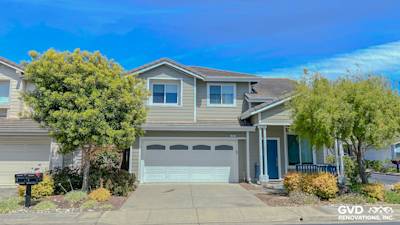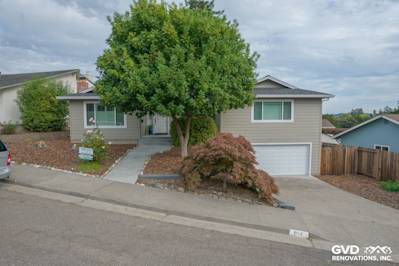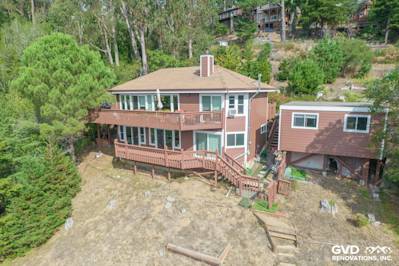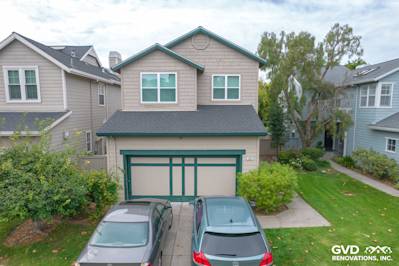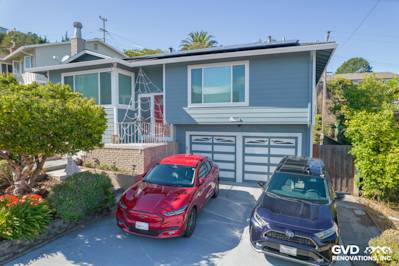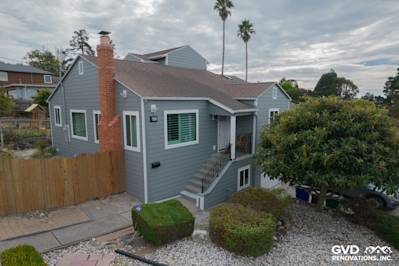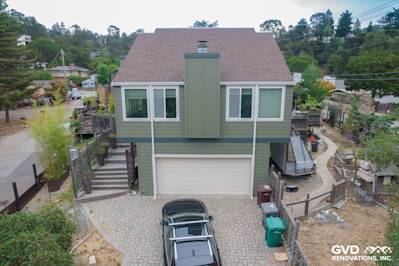As a homeowner, maximizing the efficiency of your Home Ventilation and Air Conditioning (HVAC) system isn't just about comfort, it's about energy savings and environmental stewardship too. Likewise, energy-efficient windows play a vital role in maintaining optimal indoor temperatures while minimizing energy consumption. This blog will take a deep-dive into understanding HVAC efficiency and the role of energy-efficient windows.
Table of Contents
- Understanding HVAC Efficiency
- Role and Features of Energy-Efficient Windows
- Strategies to Improve HVAC Efficiency
- Tips for Increasing Energy Efficiency with Windows
Understanding HVAC Efficiency
HVAC efficiency is essentially the ratio of useful thermal energy provided by a system compared to the amount of energy consumed. Higher efficiency translates to a greater portion of the energy being converted into useful heating or cooling in your home with minimal waste.
Different HVAC systems have varied efficiencies, dictated by their Seasonal Energy Efficiency Ratio (SEER rating), Heating Seasonal Performance Factor (HSPF), and Annual Fuel Utilization Efficiency (AFUE). These standards gauge how efficiently a unit consumes energy during different weather conditions.
Role and Features of Energy-Efficient Windows
A considerable amount of a home's heat loss in winter and heat gain in summer occurs through windows. Energy-efficient windows are key in mitigating these effects. They're specially designed to prevent your heated or cooled air from escaping your home. The two primary attributes of energy-efficient windows are:
Low-E Glass: Low-emissivity glass (Low-E) has a special coating to reflect thermal radiation. Standard glass allows ultraviolet and infrared lights to pass through, but Low-E glass blocks most of these, reducing heat transfer without limiting visible light.
Double Glazing: Double-glazed windows consist of two glass panes with an insulating space between them. This layer, often filled with argon or krypton gas, serves as an additional barrier against thermal energy transfer.
Strategies to Improve HVAC Efficiency
Several strategies can boost the efficiency of your HVAC system. Here are key ones:
Regular Maintenance: Get your HVAC system serviced regularly to prevent potential issues that might cause inefficient operation.
Ductwork Inspection: Ensure your ductwork is sealed properly and insulated to prevent air leaks.
Use a Programmable Thermostat: Sleek, modern thermostats allow you to set temperatures for different times of the day, so you can minimize energy waste when you're away from home.
Change Filters Regularly: Dirty filters make your unit work harder. Replacing filters consistently will optimize the performance and efficiency of your system.
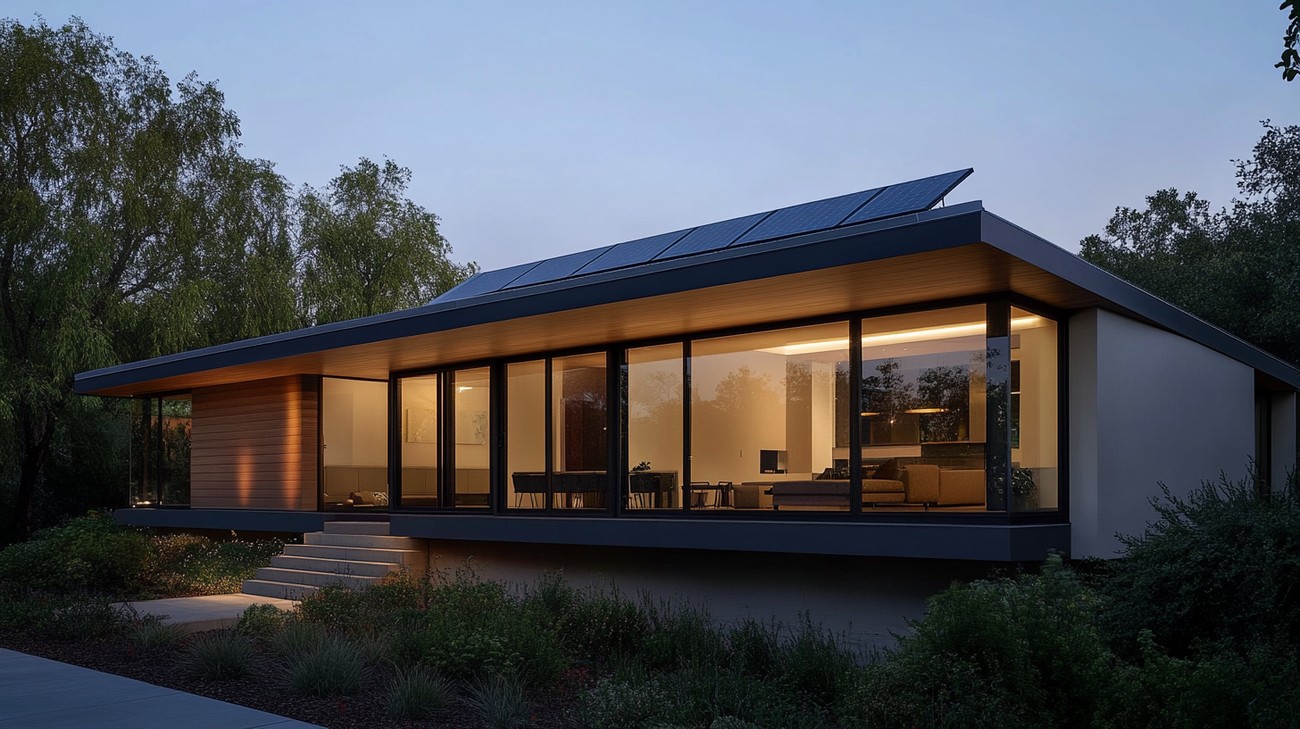
Frequently Asked Questions about Hvac Efficiency And Energy-efficient Windows
What contributes to HVAC efficiency?
There are many factors that contribute to HVAC efficiency, ranging from the size and design of the system, to how well its components interact with your home’s insulation and windows. If part of your home is losing heat or cool air due to poor insulation or inefficient windows, your HVAC system will have to work harder to maintain comfort levels.
How do energy-efficient windows work?
Energy-efficient windows are designed to prevent thermal energy loss from your home. This is achieved either through the use of special glass that reflects thermal energy back into your home during the winter, or by using seals and spacers that reduce air leaks around the window.
How can energy-efficient windows help in saving energy?
By reducing the amount of heat or cool air that escapes from your home, energy-efficient windows can significantly decrease the energy consumption of your HVAC system. They restrict the unnecessary air transference, which can lower the frequency and duration of HVAC system operation, saving energy and money.
What is the difference between single-pane and double-pane energy-efficient windows?
Single-pane windows have one layer of glass, while double-pane windows have two layers of glass with a gap in between, often filled with a type of gas that provides additional insulation. Double-pane windows are usually more efficient than single-pane versions because they have more insulating properties and are better at reducing thermal energy loss.
What is Low-E Glass and how does it improve HVAC efficiency?
Low-E (Low Emissivity) glass has a special coating that reflects thermal radiation or heat. During the winter, this means that heat from your heating system is reflected back into your home rather than escaping through the window, thereby improving HVAC efficiency.
Can window films improve HVAC efficiency?
Yes, window films can improve HVAC efficiency. These films reflect the sun's heat and harmful UV rays in the summer and retain the interior heat during the winter. This can help maintain a consistent and comfortable indoor temperature, reducing the workload on the HVAC system.
Can having energy-efficient windows replace the need for a good HVAC system?
While energy-efficient windows can significantly improve the performance of your home’s HVAC system by reducing heat loss, they cannot replace a good HVAC system. Every building needs a properly designed and functioning HVAC system to maintain a comfortable indoor environment.
How do I know if my windows are energy-efficient?
Energy-efficient windows often include labels or ratings from organizations such as the National Fenestration Rating Council (NFRC) in the US that can help you determine their level of efficiency. You can also ask a professional for an assessment if you're not sure.

Pros of HVAC Efficiency and Energy-Efficient Windows
1. Cost Savings
Reduced Utility Bills
One of the most significant advantages of having an efficient HVAC system and energy-efficient windows is the potential for significant savings on utility bills. These systems use less energy to warm or cool your home, leading to lower electricity consumption and smaller bills.
Minimal Maintenance Costs
Another financial benefit is the reduced cost of maintenance. HVAC systems with a high efficiency typically require fewer repairs and less frequent servicing than older, less efficient models. Similarly, energy-efficient windows are usually made with high-quality materials that can stand up to the elements, reducing the need for costly replacements or repairs.
2. Eco-friendly
Reduced Energy Consumption
Efficient HVAC systems and windows don’t just save you money – they also contribute to environmental sustainability. By reducing your home’s energy consumption, you’re directly decreasing the amount of fossil fuel that’s being burned in order to generate that energy, which lessens your carbon footprint.
Limiting Emissions
The high efficiency of these systems also means that they generate fewer emissions compared to their conventional counterparts. This helps in reducing your household’s contribution to air pollution, achieving a greener and healthier environment.
3. Improved Comfort
Consistent Temperatures
Energy-efficient windows and HVAC systems work together to maintain a more consistent indoor temperature. This can make your home more comfortable year-round, reducing the cold spots during winter and the hot spots during summer.
Noise Reduction
If you live in a high-traffic area, energy-efficient windows can also significantly reduce noise pollution. They’re usually constructed with multiple panes of glass and other sound-damping materials, making your indoor environment quieter.
Cons of HVAC Efficiency and Energy-Efficient Windows
1. High Initial Costs
Installation Cost
Although you save money in the long run, energy-efficient windows and HVAC systems come with high upfront costs. The initial investment can be intimidating, and may take several years to recoup through energy bill savings.
Retrofitting Old Homes
If you own an older home, installing these systems can be especially costly. Retrofitting old homes with energy-efficient technologies usually involves major renovations and dealing with issues like old wiring or lack of insulation.
2. Limited Options
Fewer Models in the Market
While the energy-efficient market is growing, there are still far fewer models of efficient HVAC systems and windows available compared to traditional ones. This can limit your options when it comes to styles, features, or brands you prefer.
Incompatibility with Existing Systems
Integrating energy-efficient systems can sometimes pose a problem if you’re not planning a total overhaul. Certain HVAC units or windows might not be compatible with the existing architecture or other systems in your home, posing logistical and aesthetic challenges that could add up to substantial costs.
3. Learning Curve
New Technology
Energy-efficient systems often come with new, more complex technology compared to traditional systems. This can make maintenance and troubleshooting somewhat challenging for homeowners who are not familiar with the new technology.
Finding Specialists
Not all contractors are familiar with installing and maintaining these systems. Depending on where you live, you might find it challenging to find skilled technicians who can carry out the necessary work, potentially leading to higher installation or maintenance costs.

Myths and Misconceptions about HVAC Efficiency and Energy-Efficient Windows
When it comes to HVAC efficiency and energy-efficient windows, there are plenty of misconceptions that can confuse consumers. Let's take a deep dive into these fallacies to separate the fact from fiction.
Misconceptions About HVAC Efficiency
HVAC systems are critical components of a comfortable and healthy home environment. However, a little understanding can lead to some misconceptions about these systems.
Sears or Brands Don’t Matter; All HVAC Systems are the Same
One of the biggest misconceptions about HVAC systems is that the brand or the firm installing it doesn't matter, and all systems function the same. This isn't true. Different brands offer varied features, warranties, and energy efficiencies. Further, the performance of an HVAC system highly depends on the installation quality. A poorly installed high-end system may underperform compared to a correctly installed standard unit.
Bigger Systems are Always Better
Another misconception about HVAC systems is that bigger systems are always more effective. While a bigger system is more powerful, it may not necessarily be suitable for all homes. An oversized system can cycle on and off frequently, leading to increased wear and tear and reducing its lifespan. A properly sized system accounts for factors like home size, insulation, the local climate, and more. It is crucial to consult with a qualified HVAC professional to determine the right size for your system.
Changing Filters Isn’t Important
Many homeowners believe changing filters isn't essential. However, neglecting to replace HVAC filters can lead to reduced efficiency, lower air quality, and potentially expensive maintenance issues. Depending on the filter type and your living conditions, filters should be replaced every one to three months.
Misconceptions About Energy-Efficient Windows
Energy-efficient windows can bring substantial savings on energy costs, reduce your carbon footprint, and provide improved comfort. Despite the benefits, there are still some prevailing misconceptions.
Energy-Efficient Windows aren’t Worth The Investment
One common myth is that the savings on your energy bill won't justify the cost of energy-efficient windows. The reality is, while these windows may be more expensive initially, they can save you money in the long run. These savings extend beyond reduced energy expenses. Energy efficient windows also reduce wear and tear on your HVAC system, extend the lifespan of your interior furnishings by reducing sun exposure, and can potentially increase your home's value.
All Energy-Efficient Windows are The Same
Just as with HVAC systems, there is a misconception that all energy-efficient windows are the same. In reality, energy efficiency levels can vary significantly based on window design, framing materials, glazing type, and more. To ensure maximum efficiency, windows should be chosen based on the specific climate and needs of a home.
Window Replacement Doesn’t Make a Difference
A widely held misconception is that window replacement doesn't make a significant impact compared to other energy-saving measures. However, older or damaged windows can cause substantial heat loss in winter and heat gain in summer. High-quality, energy-efficient windows can reduce your energy use and carbon footprint, leading to considerable savings over time.
As consumers, it is essential to educate ourselves and debunk these myths and misconceptions. Quality HVAC systems and energy-efficient windows play critical roles in home comfort and energy consumption. By making informed decisions, homeowners can ensure they're making the most out of their investments, saving money, and improving the sustainability of their homes.
Summary
Looking at all the facts and advantages, it's pretty clear that HVAC efficiency and energy-efficient windows are a great combo in our bid to live sustainably. Besides saving a significant chunk on energy costs, you also create a comfortably warm or cool indoor environment. Plus, let's not forget the positive impact on our environment by reducing carbon footprint.
The magic happens when you combine the efficiency of your HVAC system with energy-efficient windows. Energy-efficient windows work by reducing heat transfer, meaning your HVAC system doesn't have to work as hard to keep your home's temperature consistent. This winning combo does not just save you money; it ensures a cosier and more comfortable living space. Honestly, it's a no-brainer.
Lastly, the benefits go beyond just energy-saving and reducing carbon footprint. It's also about enhancing the worth of your property. Homes with energy-efficient features are highly sought after in the property market. Given these pointers, making a switch to HVAC efficiency and energy-efficient windows is a genuinely smart and eco-friendly move. It’s no wonder that more and more people are exploring this effective approach to modern living. So, are you ready to make the switch?
About Bay Area Siding Company
Bay Area Siding Company is your trusted local expert for all things related to siding in the lovely Bay Area, CA. We offer top-tier services, including siding installation, repair, and maintenance using the finest materials available. Our commitment to keeping homes beautiful and protected from the elements is what separates us from the competition. We take pride in our team of highly experienced professionals, who provide unparalleled craftsmanship and customer service. To sum it up, Bay Area Siding Company is where aesthetic design meets function, providing all our valued customers with durable and aesthetically pleasing solutions for their homes. So remember, if you want to give your home a fresh look while protecting it from the California climate, we're the folks to call.

